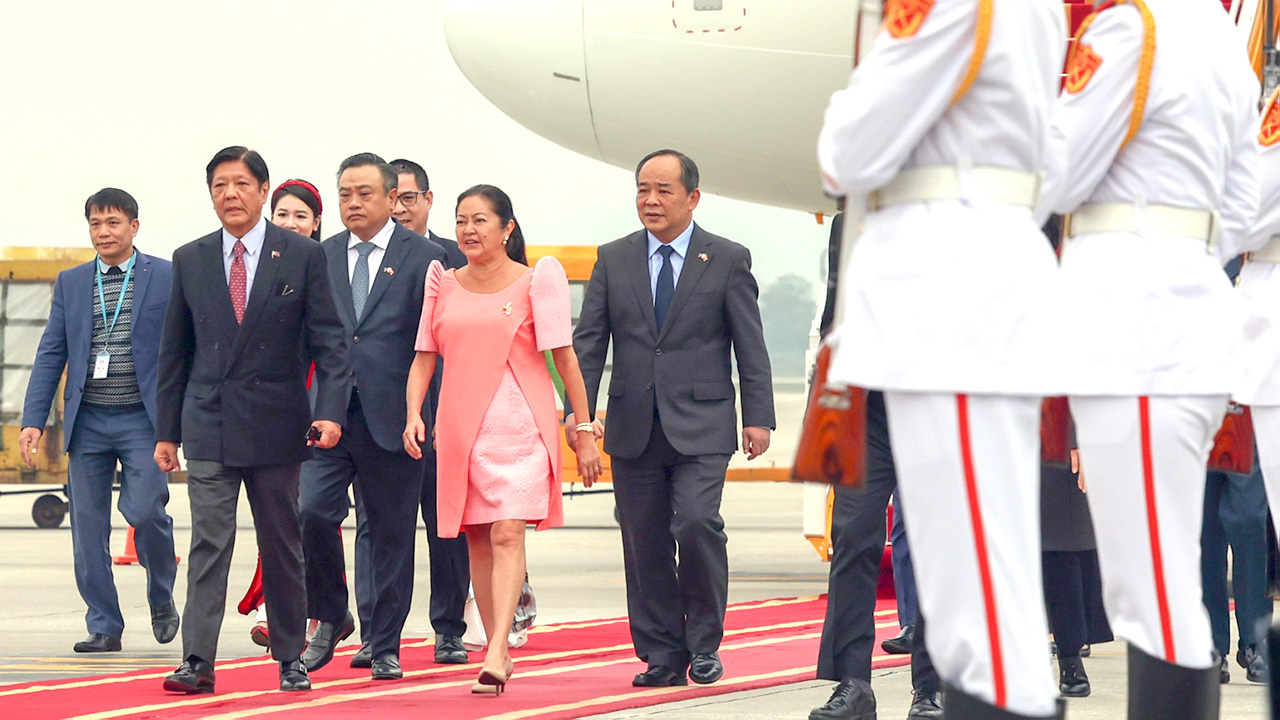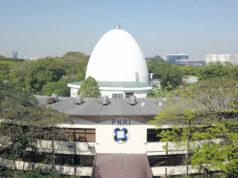Sea cooperation a bedrock of Vietnam visit — Marcos

PHILIPPINE President Ferdinand R. Marcos, Jr. on Monday said talks on maritime cooperation between his country and Vietnam would be one of the cornerstones of a strategic partnership between the two.
“We hope to strengthen this aspect during my visit to promote peace and stability in our region,” he said in a statement before leaving for Hanoi for a two-day state visit.
The President is expected to meet Vietnam’s top officials and work on agreements on coast guard cooperation and rice supply. Vietnam is a major rice exporter, and the Philippines is one of the world’s biggest importers of the grain.
Mr. Marcos said he hopes his visit would bring their relations to greater heights and “usher in a new era of friendship and cooperation,” with talks on trade, investment, education and tourism, as well as “regional and multilateral issues of concern.”
Vietnam and the Philippines have overlapping claims in the South China Sea, but have generally friendly relations compared with the heightened tensions between Manila and Beijing over disputed waters.
Ties between the Philippines and China have deteriorated this past year, coinciding with a tougher stand by Manila and overtures by Mr. Marcos to forge stronger military relations with the United States.
The South China Sea, a conduit for more than $3 trillion in annual ship-borne commerce, is claimed almost entirely by China via a U-shaped line policed by its vast coast guard fleet that cuts into the exclusive economic zones of Vietnam, the Philippines, Malaysia, Brunei and Indonesia.
In 2016, the Permanent Court of Arbitration in the Hague said China’s claims were illegal, a decision Beijing has rejected.
“The plane carrying President Marcos and the First Lady arrived at around 3:05 p.m. (Vietnam time) at the Noi Bai International Airport where they were warmly welcomed by the Vietnamese officials,” the presidential palace said in a statement.
Mr. Marcos will visit Vingroup Co. later in the day to deepen the Philippines’ engagement with them. It is Vietnam’s largest private company with a market capitalization of $21.1. billion as of April 2023 through its unit VinFast, which is valued at $15 billion.
VinFast plans to sell and launch its electric vehicles (EVs) in the Philippines through a dealership business in April to test the local market first as it expressed its intention to engage in the manufacture and assembly of CKD EVs.
Several Philippine private sector leaders would join the President during the meeting, the palace said.
Bernard B. Espeña, who teaches international relations at the Polytechnic University of the Philippines, earlier said the Philippine Coast Guard (PCG) should also boost maritime cooperation with other Southeast Asian nations other than Vietnam amid the slow development in the push for a code of conduct (CoC) in the South China Sea.
A possible cooperation deal between the Philippine Coast Guard (PCG) and its Vietnamese counterpart, which they have been working on since 2018 and is expected to be sealed this month, could be an “informal model” for the proposed South China Sea code of conduct, he said.
Mr. Espeña said the lack of operational models for a legally binding instrument has delayed the approval of the code of conduct.
The Philippine Coast Guard on Jan. 23 gave a “comprehensive briefing” to Vietnamese officials, including Vietnam’s Standing Deputy Minister of Foreign Affairs Nguyen Minh Vu and Ambassador to the Philippines Lai Thai Binh, on Manila’s maritime security operations in the South China Sea. —
The two countries also sought to advance a memorandum of understanding between the PCG and its Vietnamese counterpart, which they have been working on since 2018.
Mr. Marcos, 66, said during his visit to the United States last year his government was seeking to set up a separate code of conduct with Vietnam and Malaysia.
The Philippine leader cited the slow progress of the code between China and ASEAN members.
After the Philippines’ push for a separate code of conduct, China warned that any departure from the Declaration on Conduct of the Parties in the South China Sea, which provided the framework for the regional code, would be void.
Vietnam was said to be the “last man standing” in the South China Sea conundrum when the Philippines pivoted to China during the previous administration.
Hanoi conducted major expansion activities such as dredging and landfill work at most of its South China Sea outposts in 2022. — with Reuters



